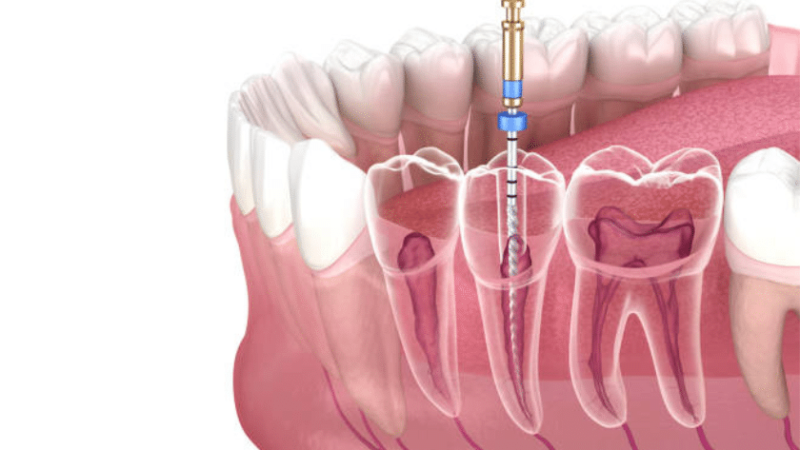How to Find a Mental Health Clinic in New Jersey

In New Jersey, you can get mental health services for a wide range of issues and concerns. It doesn’t matter if you have a minor mental illness or a more severe one, you can find the right treatment center to help you heal and recover.
Quality mental health care will address all of your concerns and symptoms to create a holistic treatment plan that works for you. In addition, if you have more than one mental health condition, a quality treatment center will integrate them into one treatment plan.
Table of Contents
Find a Psychiatrist
Psychiatrists diagnose, prescribe medications, and provide psychotherapy for a range of mental health disorders. They also conduct physical exams and order blood tests and brain scans. They work in a variety of settings, including hospitals and mental health clinics.
Many New Jersey psychiatrists are licensed to offer teletherapy, or therapy sessions via remote video call. This allows them to work with clients in underserved areas and those who can’t get to an in-person session. Psychiatrists can offer these services through Zencare or other teletherapy platforms.
To find a psychiatrist in New Jersey, begin by using the filters on Zencare to narrow down your search. Then, look through potential providers’ profiles and watch an introductory video to learn more about them. If you like what you see, book a free initial call to make sure they’re a good fit for you.
Once you’ve found a psychiatrist that’s a good fit, you can schedule an appointment online with them to begin treatment. During this first session, you’ll discuss your goals for therapy and make sure the therapist is a good match for you.
When it comes to therapy, it’s important to find a therapist who matches your personality and style of communication. A reputable therapist will be warm and compassionate and will help you develop new skills to better manage your symptoms and overcome challenges.
A qualified therapist can help you with anxiety, depression, bipolar disorder, schizophrenia, and more. Some therapists specialize in specific conditions, such as trauma, ADHD, and addiction.
Choosing the right therapist is one of the most important decisions you’ll make during your therapy journey. It can be difficult to know who is a good fit for you, especially if you’re not familiar with the field. The therapist’s training, the scope of practice, and personal qualities will impact how well you get along with them.
Finding a psychiatrist in New Jersey can be tricky. In addition to a shortage of psychiatrists, the state has many rural areas and often requires long travel times for appointments. To combat this, e-Psychiatry has partnered with hospitals and mental health facilities to provide them with psychiatrists who can work with patients through telepsychiatry.
Find a Therapist
New Jersey therapists treat a wide range of mental health conditions and provide services to individuals, couples, and families. Whether you’re dealing with stress, depression, trauma, or a relationship issue, a therapist can help you work through your emotions and learn to deal with them in healthy ways.
There are many factors to consider when choosing a therapist, including the type of therapy they provide and their experience. Some therapists focus on cognitive therapies, like Cognitive Behavioral Therapy (CBT) or Dialectical Behavior Therapy (DBT), while others offer insight-oriented therapeutic approaches, like psychodynamic therapy.
Finding the right therapist for you will help to ensure that you’re getting the support you need and that you feel comfortable during sessions. Using a free matching tool, like Zencare, you can find a mental health professional that is a great fit for you.
Therapists on Zencare are vetted to be experienced in treating children, adolescents, adults, and couples. Their profiles are filled with details about their training and experience, including the specific areas they specialize in. You can also watch introductory videos to get a better sense of their personality and style.
Some therapists have offices located in their city or town, while others provide online therapy. Depending on your needs and budget, it may be more cost-effective to see an in-person therapist or an online therapist.
If you have insurance, many health plans will cover part or all of the cost of therapy. However, you must first check your plan details and the provider’s network to determine if insurance coverage will apply.
In addition, it’s important to check your out-of-network benefits to see if there are any additional costs that you’ll be responsible for. This is especially true if your insurance does not cover the full fee of an out-of-network session.
Fortunately, most people in New Jersey are eligible for mental health coverage under their medical and/or dental plans. This means that you’ll typically only pay a copay for your therapy sessions, as long as you meet your deductible.
In order to make sure you’re able to receive the care that you need, it’s best to choose a therapist who accepts your health insurance plan. You can do this by contacting the therapist’s office or through their online profile on this site.
Find a Treatment Center
The state of New Jersey has a variety of mental health clinics that provide care for patients with various disorders. Treatment centers may help patients with depression, anxiety, and PTSD, among other conditions.
A mental health clinic can also be a good place to receive help with alcohol and drug addiction. These programs often offer multiple levels of care, including detoxification and residential treatment.
Some of these programs even have a 12-Step philosophy, which can be helpful in achieving long-term recovery. If you’re looking for a treatment center in New Jersey, it’s a good idea to ask what their philosophy is before signing up for a program.
You can also find out what kinds of therapy the program offers before committing to a specific type of treatment. Group and family therapy are two common types of treatment that can be helpful in addressing substance abuse issues.
Another option for treatment is medication-assisted treatment, which involves taking pharmaceutical medications that can be used to decrease cravings and increase the likelihood of long-term recovery. These medications can be effective when used in combination with other therapies.
If you are struggling with a substance use disorder, it’s important to get help right away. Many rehab facilities offer detox services for people who are battling withdrawal symptoms.
Choosing a New Jersey facility that provides detoxification services can be a helpful way to start your journey to recovery. These programs may also be able to assist you in getting help with other problems that are associated with your substance use disorder, such as depression or anxiety.
The majority of NJ rehabs provide a range of treatment options, from detox to outpatient counseling to residential treatment. Some facilities specialize in treating a particular population of people, such as women or adolescents.
Inpatient and residential programs are usually more expensive than outpatient treatments. However, they can provide more stability and a structured schedule.
Some programs have a sliding scale for payments, which allows them to charge less or more depending on your income. This is a good option if you’re on a tight budget and want to get help as soon as possible.
Find a Recovery Center
Whether you are dealing with mental health problems or addiction, there is always help available. The state of New Jersey is home to a number of excellent recovery centers and treatment programs that can help you find the healing you need.
If you are seeking a New Jersey mental health clinic, you will want to make sure that you choose one that is reputable and has high-quality professionals on staff. You will want to ask about their background and education, as well as whether they have experience with the type of treatment that you are looking for.
You should also consider your budget and the level of care that is offered at the facility. Some of these facilities offer a more intensive program, such as inpatient, while others will offer an outpatient setting.
Inpatient care is ideal for those who are suffering from a severe mental illness. This will allow them to remove themselves from their environment and focus on getting better. This type of treatment will also give the patient a chance to get more intensive treatment, such as group therapy and individual therapy.
Some of these facilities will also provide a drug detox as part of their treatment options. This can be an important step in the recovery process for many people, as it will remove the substances from their system and allow them to start anew without the use of drugs or alcohol.
Other options for substance abuse treatments include outpatient programs, which are usually more affordable and flexible. They are a great option for people who have other commitments and cannot commit to an inpatient program.
These programs typically consist of therapy sessions with a therapist, group or individual counseling, and educational activities. They can help you learn how to cope with stress and deal with difficult emotions in a healthy way.
The treatment programs at rehabs in New Jersey can vary greatly, depending on the specific needs of each client. Different centers offer evidence-based treatment modalities, including CBT and EMDR, as well as holistic practices such as yoga, meditation, and outdoor adventure therapies.






